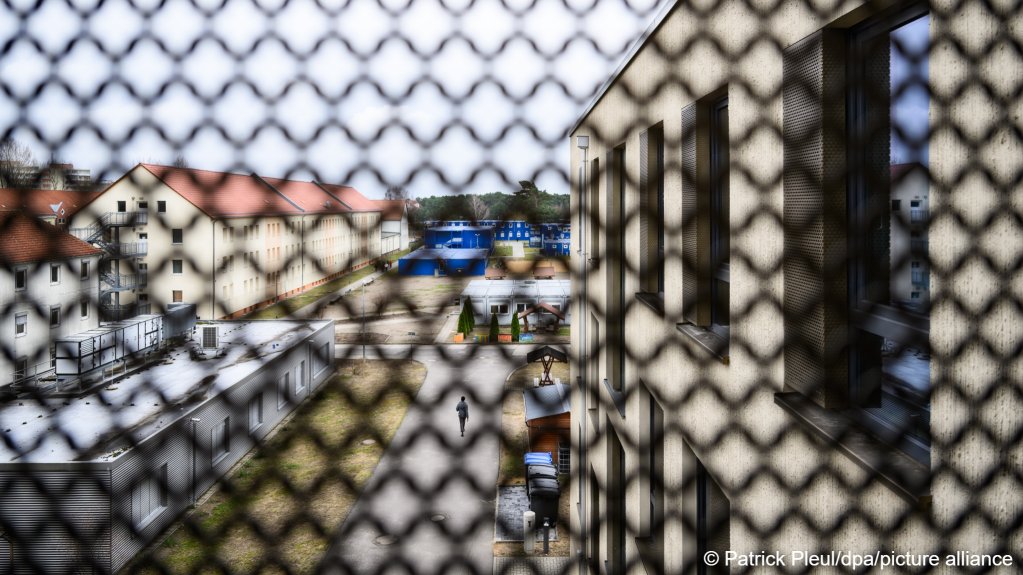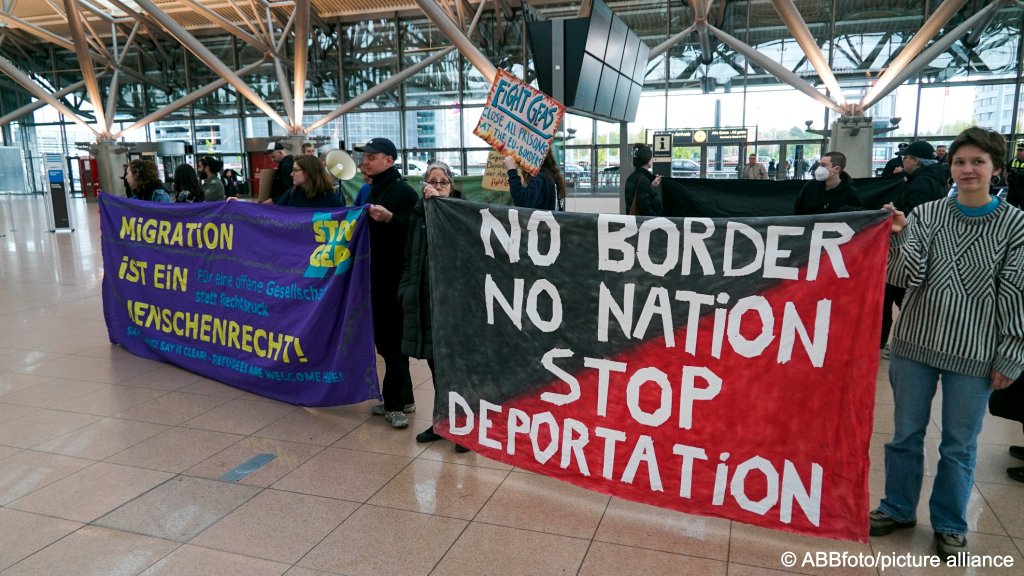Deportations in the first quarter of this year rose by 28 percent compared to the same period last year. As Germany ramps up its return efforts, questions are growing over enforcement tactics, rising expenses, and legal precedent.
Germany deported 6,151 people in the first three months of 2025 -- a sharp increase compared to previous years. In the same period last year, the figure was 4,791, marking a 28.4 percent rise. If the current trend continues, the annual total could exceed 24,000 deportations, significantly more than the 20,000 recorded in 2024 and the 16,500 in 2023, according to a report by RedaktionsNetzwerk Deutschland (RND), citing a response from the federal government to a parliamentary inquiry by the Left Party.
The majority of deportations in early 2025 were carried out under the previous government, though the current administration -- with CDU and CSU influence -- has pledged to further increase deportations. Common destination countries included Turkey, Georgia, France, Spain, and Serbia. Additionally, 157 people were deported to Iraq and five to Iran.
'Dublin transfers'
Roughly 1,700 of the deportations were classified as "Dublin transfers" under the EU’s Dublin Regulation, which requires asylum seekers to file their applications in the first EU country they enter. These transfers were made to other EU member states deemed responsible for processing the asylum claims.
In the past few years, Dublin transfers have been difficult to carry out -- despite formal approvals from other member states. In 2023, Germany requested 74,622 transfers under the Dublin system, with 55,728 approvals from partner countries. However, only 5,053 people were actually transferred -- less than 10 percent. In 2024, the situation was similar: 74,583 requests led to 44,431 approvals, but just 5,827 transfers were carried out.
However, a recent ruling indicates a new approach by EU member states towards Dublin transfers. Last month, Germany’s top administrative court ruled that two asylum seekers can be deported to Greece under the EU’s Dublin Regulation, despite concerns over poor living conditions there. The court found that the minimum standards for asylum seekers are met, even if conditions are harsh.
The decision has set a legal precedent, including for stateless individuals, and is seen by German conservatives as a step toward curbing secondary migration within the EU. Refugee advocates strongly criticized the ruling, citing the risk of homelessness and lack of support in Greece.

Germany opened its second Dublin deportation center in Eisenhüttenstadt at the beginning of March 2025, aiming to speed up the return of rejected asylum seekers, mainly to Poland, under the EU’s Dublin Regulation. The German Interior Ministry is currently in discussions with the federal states regarding additional Dublin centers.
Read AlsoGerman government sees 'progress' in talks with Greece about migrant returns
Rising costs
More than a third of the deportations were conducted via costly charter flights. Group deportations to Pakistan were particularly expensive, costing 462,000 euros. Flights to Ethiopia totaled 418,000 euros, and others to Nigeria, Ghana, and Cameroon cost 380,000 euros. However, many of these expenses were covered by the European Border Agency Frontex.
The increase and methods of deportation have drawn sharp criticism from opposition politicians. Clara Bünger, a Left Party MP, accused authorities of using excessive force. "There are numerous cases where police acted brutally and without empathy," she told RND. "We are talking about families being coldly torn apart, or sick individuals being effectively abducted from hospitals and taken straight to deportation flights."

As deportation numbers rise and costs mount, the debate over Germany’s asylum and migration policies is intensifying -- not just around efficiency and enforcement, but around basic human rights and the treatment of vulnerable individuals.
Read AlsoGerman interior ministry enforces tougher border policy, turns back asylum seekers
